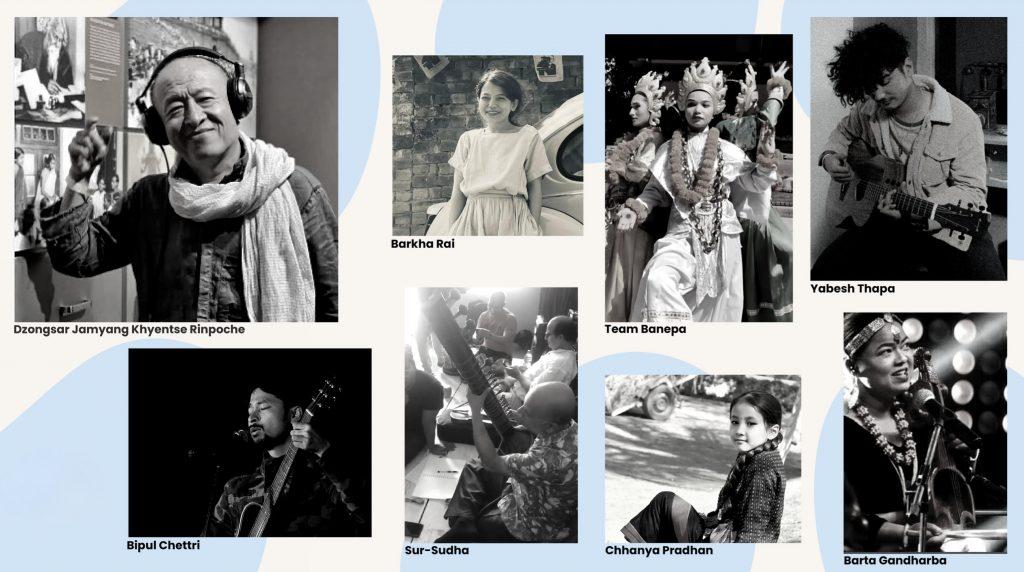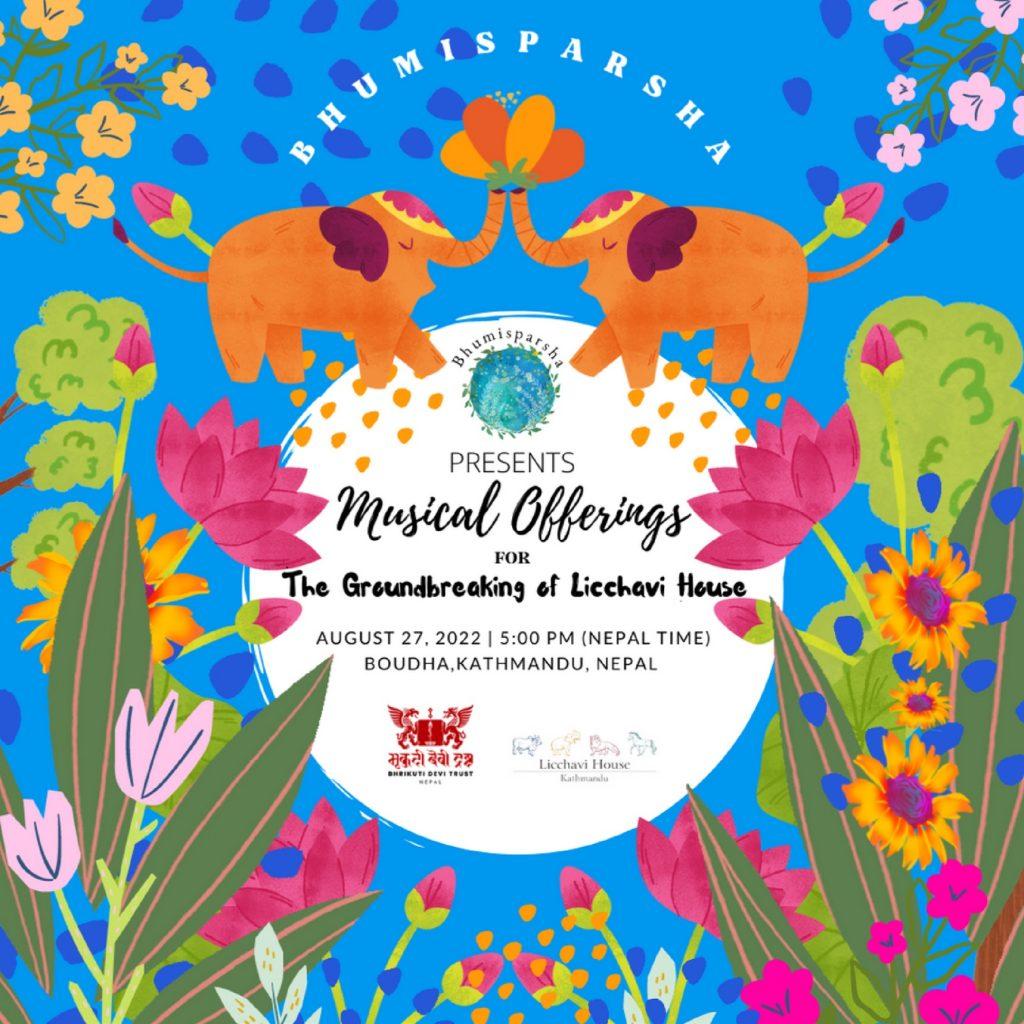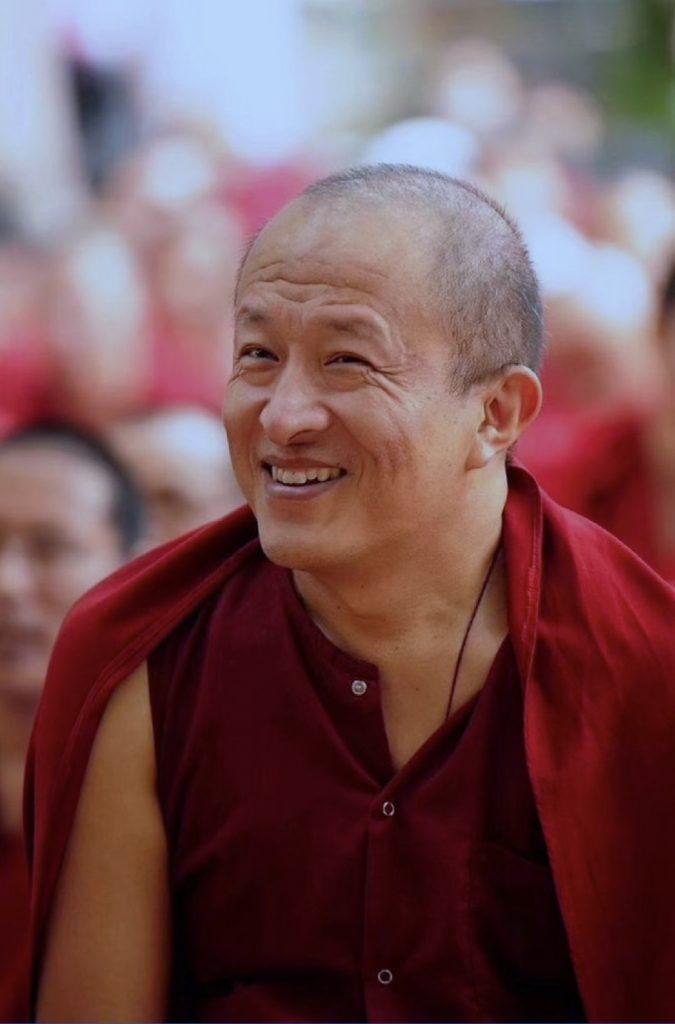
Licchavi House, a new Dharma initiative of Dzongsar Khyentse Rinpoche, will celebrate its ground-breaking ceremony in Kathmandu with a live-streamed event on Saturday 27 August.
The launch of Licchavi House, which is spearheaded by the Kathmandu-based nonprofit Bhrikuti Devi Trust, will feature dance and musical performances by Bhumisparsha, a Dharma project of Siddhartha’s Intent India. These cultural offerings will lead up to the main event of the evening: a performance of If We Don’t Act Like Gods Who Will, a new play written by Rinpoche offering a unique perspective on climate change and spirituality.
“Licchavi House is Dzongsar Jamyang Khyentse Rinpoche’s latest initiative in Nepal,” an announcement shared with BDG by Siddartha’s Intent India stated. “Licchavi House, overlooking the UNESCO-listed Great Stupa of Boudhanath, Kathmandu, is a cultural centre with a vision of nurturing the study, discussion, and practice of Nepal’s ancient wisdom traditions, alongside art, film, photography, and other creative workshops. Licchavi House aims to celebrate this remarkable ancient heritage in ways entirely relevant to the modern world.”
Founded in 2020, Bhrikuti Devi Trust is a nonprofit organization that works to promote the spiritual and cultural heritage of Himalayan regions, and to address social and humanitarian needs.

Writing on his vision for this new Dharma initiative in Kathmandu, Dzongsar Khyentse Rinpoche shared:
The founding of Licchavi House in Kathmandu abounds with historical, spiritual, and even family symbolism.
First, we intend Licchavi House to represent the remarkable gift that Nepal itself can offer the world. While Nepalese have no choice but to adapt to this fast-paced 21st century, the country and its people still magically keep their ancient spiritual and cultural inheritance alive and vibrant.
Beyond its mountains and trekking that attract so many, Nepal’s temple bells still ring and the fragrance of incense wafts through the air as devotees, young and old, circumambulate the ancient stupas, just as they have for centuries.
As Buddhism is deeply rooted in its history and culture, Nepal is the place renowned spiritual masters of all traditions have chosen as their seats, and a thousand years ago was the key junction through which some of the greatest Himalayan saints and scholars passed. To this day, this land remains the meeting point for some of Buddhism’s most important influences.
And of course, based on today’s borders, Nepal can proudly claim to be the birthplace of Prince Siddhartha and to be the nation that gave the Buddha Shakyamuni to the world.
Licchavi House will work to ensure that, while Nepalese necessarily adjust to modern needs, they also continue to cherish, uphold and celebrate their country’s extraordinary heritage and contribution to the world.
In fact, we’ve chosen this name for a reason—literally to create a family bond with our history. From about 400–750 CE, the Licchavi clan ruled the Kathmandu Valley and helped spread Buddhism to Tibet and central Asia through trade, pilgrimage and missionaries.
The dominant clan in south Nepal and north Bihar at the time of the Buddha, the Licchavis were among the most devout disciples and generous patrons of the Buddha, receiving some of his most important teachings. Indeed, the Buddha’s own mother, Mayadevi, was a Licchavi.
Licchavi House itself is a project of the Bhrikuti Devi Trust, named for the Nepali princess of the Licchavi Kingdom in the Kathmandu Valley who married King Songtsen Gampo of Tibet around 621 CE. A devout Buddhist who was considered an emanation of Tara and the most important spiritual influence on the Tibetan king, Bhrikuti Devi worked tirelessly to build temples and establish Buddhism in Tibet.
By nurturing the study, discussion and practice of Nepal’s ancient wisdom traditions alongside art, film, writing, photography, and other creative workshops, Licchavi House aims to celebrate this remarkable ancient heritage in ways entirely relevant to our modern world.
To that end, we want Licchavi House to be a place where young people in particular—girls and boys of all ages—and also ordinary folk from teachers to entrepreneurs to workers to students, feel comfortable just being who they are and enjoying each other’s company as they collectively learn about, practice, and take pride in their splendid inheritance.
Licchavi House, Kathmandu, is a lifestyle cultural center with a vision and a truly open and accommodating atmosphere. It will also offer short courses on meditation, community issues and Nepal’s rich spiritual traditions, and will facilitate retreats and more intensive study for those so inclined.

This live event will be conducted in English, with translation into Cantonese, French, Japanese, Mandarin, Polish, Portuguese, Russian, Spanish and Tibetan consecutive interpretation (of Rinpoche’s talk only). The ceremony will be live-streamed via YouTube and Zoom from Kathmandu at the following times:
Auckland: 11:45pm, Saturday 27 August
Canberra: 9:45pm, Saturday 27 August
Seoul, Tokyo: 8:45pm, Saturday 27 August
Beijing, Hong Kong, Singapore, Taipei: 7:45pm, Saturday 27 August
Bangkok, Jakarta: 6:45pm, Saturday 27 August
Kathmandu: 5:30pm, Saturday 27 August
New Delhi: 5:15pm, Saturday 27 August
Moscow: 2:45pm, Saturday 27 August
Amsterdam, Berlin, Paris, Stockholm: 1:45pm, Saturday 27 August
London: 12:45pm, Saturday 27 August
Montreal, New York: 7:45am, Saturday 27 August
Los Angeles, Vancouver: 4:45am, Saturday 27 August
For full details of the live-stream schedule and links, click here

Born in Bhutan in 1961, Dzongsar Khyentse Rinpoche is the son of Thinley Norbu Rinpoche and was a close student of the Nyingma master Dilgo Khyentse Rinpoche (1910–91). He is recognized as the third incarnation of the 19th century Tibetan terton Jamyang Khyentse Wangpo (1820–1892), founder of the Khyentse lineage, and the immediate incarnation of Jamyang Khyentse Chökyi Lodrö (1893–1959).
Rinpoche’s projects include Siddhartha’s Intent, an international collective of Buddhist groups supporting Rinpoche’s Buddhadharma activities by organizing teachings and retreats, distributing and archiving recorded teachings, and transcribing, editing, and translating manuscripts and practice texts; Khyentse Foundation, established in 2001 to promote the Buddha’s teaching and support all traditions of Buddhist study and practice; 84000, a non-profit global initiative to translate the words of the Buddha and make them available to all; Lotus Outreach, which directs a range of projects to ensure the education, health, and safety of vulnerable women and children in the developing world; and Lhomon Society, which promotes sustainable development in Bhutan through education.
Rinpoche is the author of several books, including: What Makes You Not a Buddhist (2006), Not For Happiness (2012), The Guru Drinks Bourbon? (2016), and Poison is Medicine: Clarifying the Vajrayana (2021), and has garnered renown inside and outside of the global Buddhist community for the feature-length films he has written and directed: The Cup (1999), Travellers and Magicians (2004), Vara: A Blessing (2012), Hema Hema: Sing Me a Song While I wait (2016), and Looking For A Lady With Fangs And A Moustache (2019).
See more
Licchavi House
Siddhartha’s Intent
Khyentse Foundation
84000: Translating the Words of the Buddha
Related news reports from BDG
Khyentse Foundation Honors Erik Pema Kunsang with 2022 Khyentse Fellowship
Khyentse Foundation Awards University of Sydney US$3.5 Million to Continue Funding Tibetan Buddhist Scholarship
Khyentse Foundation Presents 2022 KF Award for Outstanding PhD Dissertation in Buddhist Studies
Khyentse Foundation Marks 20 Years in the Service of the Buddhadharma
Windows into Buddhism: Khyentse Foundation Announces Launch of New Book and Website
Buddha Path Hostel: Khyentse Foundation Announces a New Short Film on the Buddhist Teaching
Khyentse Foundation’s Kumarajiva Project Shifts Focus to Training Translators
Khyentse Foundation’s Kumarajiva Project Marks 2nd Year with 7 Buddhist Texts Translated into Chinese
Khyentse Foundation Announces New Green Tara Sadhana eBook
Khyentse Foundation Launches New Initiative to Translate the Works of Jamyang Khyentse Wangpo
Related features from BDG
Dzongsar Jamyang Khyentse Rinpoche on Biodiversity Conservation and the Illegal Wildlife Trade
Poison Is Medicine: Paradox and Perception in Vajrayana Buddhism
On Being Brave: Dzongsar Khyentse Rinpoche on Technology and the Dissemination of the Dharma
A Buddhist Vision for Education Reform: The Blue Lion Preschool, Inspired by Dzongsar Khyentse Rinpoche
Seeing the Sacred: an Interview with Pawo Choyning Dorji, Producer of Hema Hema: Sing Me A Song While I Wait
Modern Education and the Future of Buddhism: An Interview with Dzongsar Khyentse Rinpoche













